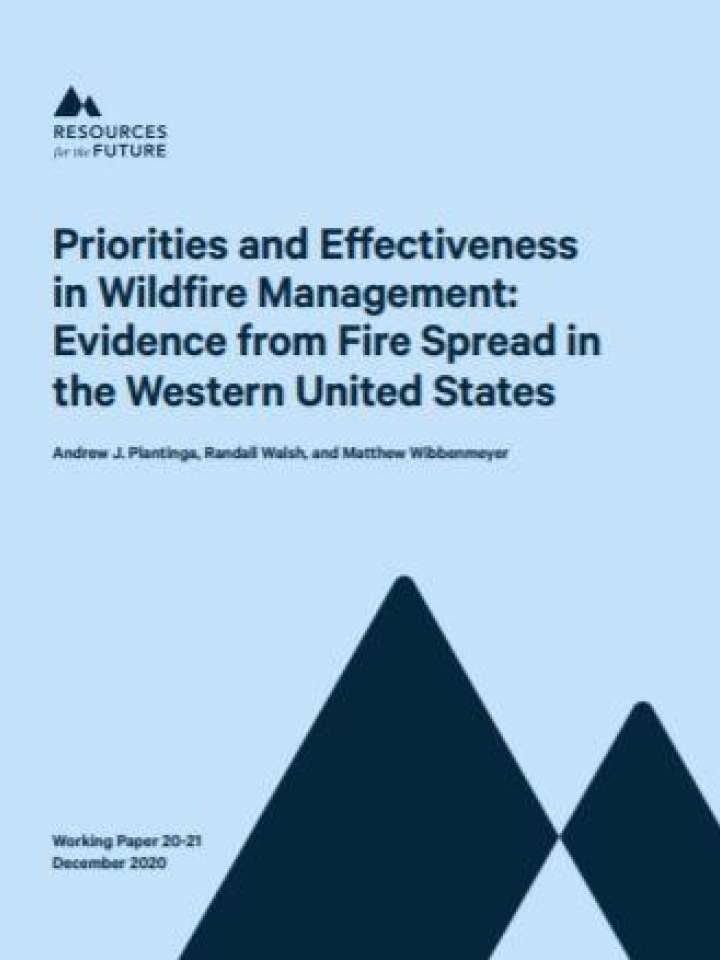Priorities and effectiveness in wildfire management: Evidence from fire spread in the Western US
In this paper, the authors estimate the effect on wildfire spread of wildfire suppression on behalf of threatened resources. Consistent with prior research, their results indicate that preventing damage to homes is a primary motivator of suppression effort.
They find evidence that fire managers commit greater effort to combat the spread of fires toward high-value homes, as well as weak evidence that they preferentially protect wealthier neighborhoods. Further, their results indicate that this effort can be at least moderately effective in stopping fire spread. Therefore, their evidence indicates that decisions made by fire managers favor particular groups and materially affect outcomes for those groups.
Explore further
